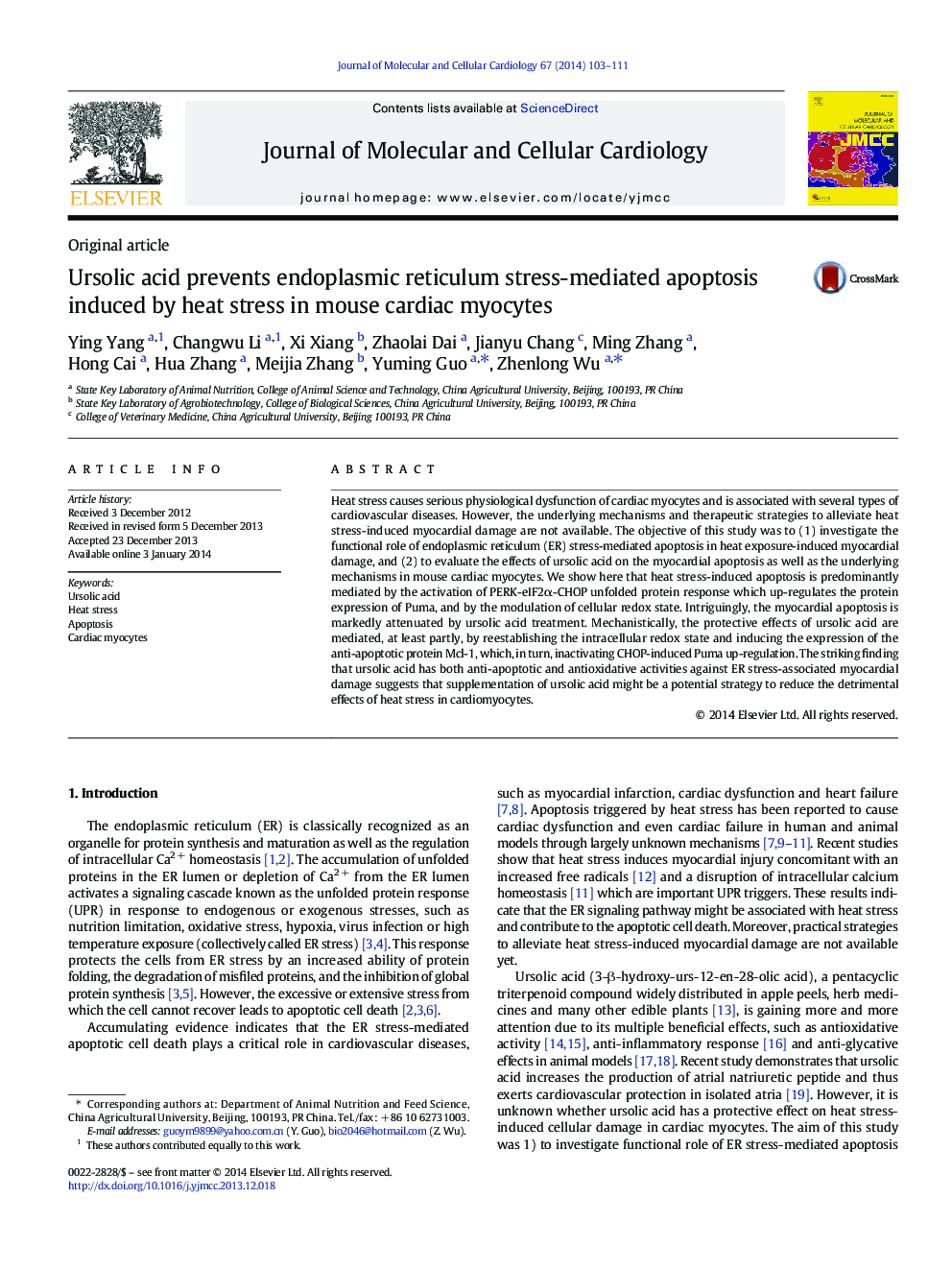| کد مقاله | کد نشریه | سال انتشار | مقاله انگلیسی | نسخه تمام متن |
|---|---|---|---|---|
| 2190578 | 1550438 | 2014 | 9 صفحه PDF | دانلود رایگان |
• Heat stress leads to ER stress associated apoptosis and cardiac dysfunction.
• Ursolic acid abolished heat stress-induced apoptosis in cardiac myocytes.
• Ursolic acid has both anti-apoptotic and antioxidative activities.
• Supplementation of ursolic acid reduces the detrimental effect of heat stress in cardiomyocytes.
Heat stress causes serious physiological dysfunction of cardiac myocytes and is associated with several types of cardiovascular diseases. However, the underlying mechanisms and therapeutic strategies to alleviate heat stress-induced myocardial damage are not available. The objective of this study was to (1) investigate the functional role of endoplasmic reticulum (ER) stress-mediated apoptosis in heat exposure-induced myocardial damage, and (2) to evaluate the effects of ursolic acid on the myocardial apoptosis as well as the underlying mechanisms in mouse cardiac myocytes. We show here that heat stress-induced apoptosis is predominantly mediated by the activation of PERK-eIF2α-CHOP unfolded protein response which up-regulates the protein expression of Puma, and by the modulation of cellular redox state. Intriguingly, the myocardial apoptosis is markedly attenuated by ursolic acid treatment. Mechanistically, the protective effects of ursolic acid are mediated, at least partly, by reestablishing the intracellular redox state and inducing the expression of the anti-apoptotic protein Mcl-1, which, in turn, inactivating CHOP-induced Puma up-regulation. The striking finding that ursolic acid has both anti-apoptotic and antioxidative activities against ER stress-associated myocardial damage suggests that supplementation of ursolic acid might be a potential strategy to reduce the detrimental effects of heat stress in cardiomyocytes.
Journal: Journal of Molecular and Cellular Cardiology - Volume 67, February 2014, Pages 103–111
